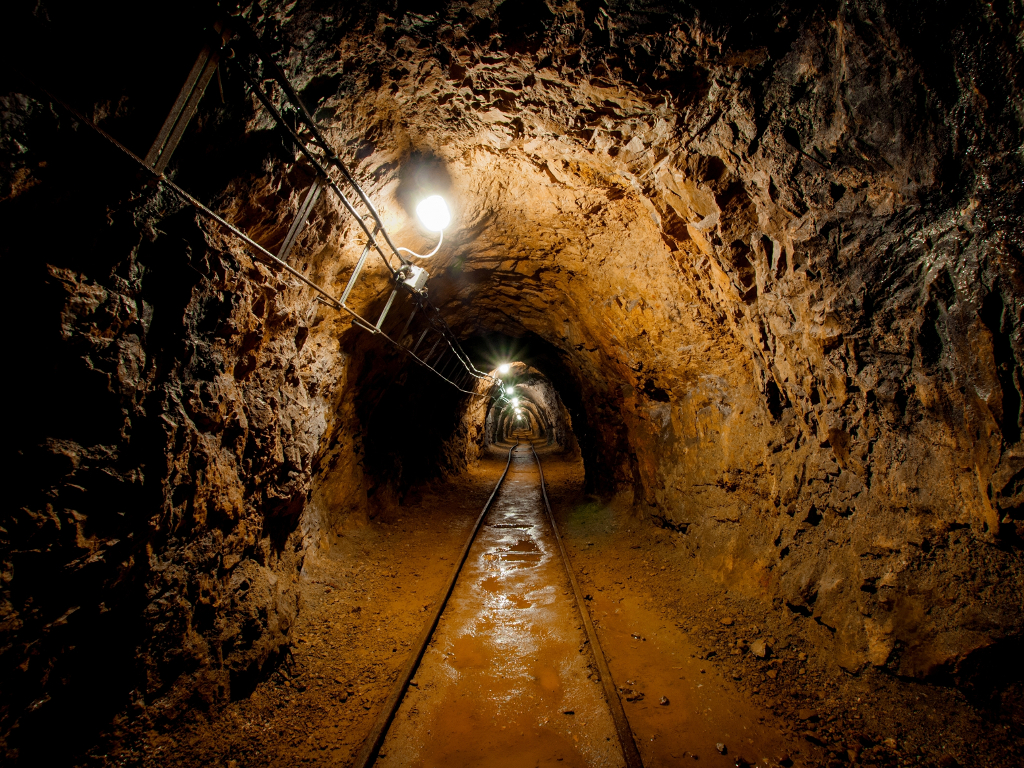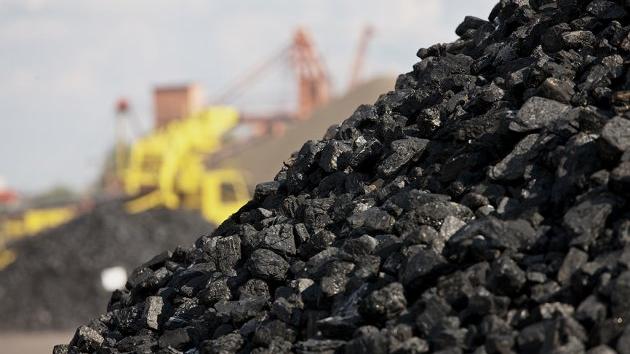Serbia Too Has the Right to Coal in Norway? – Agreement from the Time of the Kingdom of Serbs, Croats and Slovenes Might Enable Exploitation on Svalbard for Us
Illustration (Photo: SvedOliver/shutterstock.com)

The agreement provides the signatory states with a free exploitation and exploration of the considerable natural resources of Svalbard, Novosti writes.
– It is interesting that the Kingdom of Serbs, Croats and Slovenes joined the Agreement on July 6, 1925, and that, so far, no successor state of the former Yugoslavia has made a statement about continuing to realize the rights and complying with the obligations arising from the Agreement signed by the predecessor state – points out Dr Dusko Dimitrijevic, a research fellow at the Institute of International Politics and Economics.
Attention was turned to this document by the EU’s recent reaction to the Russian coal excavation sites in the subpolar archipelago, also known as Spitsbergen after its largest island. The natural resources of Svalbard had been protected for millennia by the subpolar climate. So far, only the USSR, and then the Russian Federation, has had the technology, the workforce and the ships for the exploitation and transport of the famous coal coming from permafrost. The global warming has made explorations and exploitations easier.
– Until 1871, when Norway made its territorial claim, this archipelago was considered “no man’s land”, and the interest in this area suddenly grew in late 19th century when considerable resources of coal and other minerals were discovered, as well as due to fishing – explains Dr Dimitrijevic.
– Great Britain, the Netherlands, Norway, Russia, Sweden and the USA had pretensions to these islands until the First World War broke out. During the Paris Peace Conference, a special mixed commission drafted the Svalbard Agreement, whereby Norway’s sovereignty over the archipelago was recognized, while a special international regime was established, which enables all parties to the agreement to carry out economic activities, that is, to explore and exploit natural resources from 1925.
How attractive the resources are is shown by the list of the signatory states from all continents.
– The Svalbard Agreement has a total of 46 member states that either joined it or ratified it: Afghanistan, Albania, Argentina, Australia, United Kingdom, Austria, Belgium, Bulgaria, Canada, Chile, China, Czech Republic, Denmark, Dominican Republic, Egypt, Estonia, Finland, France, Germany, Greece, Hungary, Iceland, India, Ireland, Italy, Japan, Latvia, Lithuania, Monaco, Netherlands, New Zealand, North Korea, Norway, Poland, Portugal, Romania, Russia, Saudi Arabia, Slovakia, South Africa, South Korea, Spain, Sweden, Switzerland, USA, Venezuela. The depositaries to the Agreement are France and Norway – says Dr Dimitrijevic.
Despite the great interest, only Russians have done excavations in this harsh terrain since the 1930s. Their mine of high-quality coal, which, according to experts, is a step away from the caloric value of coke coal, is still working. Still, the EU sanctions have made the supply much harder.
– This is the best quality coal of huge caloric value, which has a wide range of specific uses, from smelters to the chemical industry – says the geologist Predrag Mijatovic, the deputy director of the Geological Institute of Serbia.
– As an illustration, we couldn’t use that coal directly in our thermal power plants, because it would literally melt them. In the time of the world energy crisis, the coal from Svalbard is even more valuable. The news that there is an old agreement from the time of the Kingdom of Serbs, Croats and Slovenes, under which Serbia could explore and exploit the coal and other mineral resources on the Norwegian archipelago, is more than interesting.
Exploring this, Novosti entered the archives which may hide some other useful agreements.
– One of our most serious state problems is being very out of date, as shown by the Svalbard Agreement, of which I’ve only just learned from you – says the legal expert Dr Milan Parivodic, the former minister for foreign economic relations.
– It is very interesting and I believe that it is necessary for Serbia to apply as a successor as soon as possible. It would also be necessary to systematically examine all our archives and determine whether there are other similar agreements. I assume that they exist, because this agreement shows that, in 1925, the state was run by educated and far-seeing people.
Experts believe that the validity of the agreement is disputable, considering the passage of time and the changed circumstances which have led to the name change and the end of the predecessor states.
– There is a relevant question of its succession by the successor states following the dissolution of the Socialist Federal Republic of Yugoslavia in line with international rules and principles – emphasizes Dr Dimitrijevic.
Following the Second World War, “the second Yugoslavia” accepted the rights and obligations of multi-party agreements signed by the Kingdom of Serbs, Croats and Slovenes, or the Kingdom of Yugoslavia, but the opinions of the depositaries of the Svalbard Agreement were split during the Yugoslav crisis. France still treated the former Yugoslavia as party to the agreement, whereas Norway believed that it was not acceptable and that a solution should be found in agreement of all parties to the Agreement.
– Due to the uncertainties regarding the continuity of the validity of the Agreement, the documentation about which should be located in the Ministry of Foreign Affairs, we believe that, for the Republic of Serbia, as the legal successor to the Federal Republic of Yugoslavia and one of the successors of the Socialist Federal Republic of Yugoslavia, a better approach would be to regulate its status as a signatory state by making a statement on succession, confirming the continued validity of the Svalbard Agreement for it, or by making a statement on joining. Similar practice has been applied when inheriting multi-party international agreements of the former Socialist Federal Republic of Yugoslavia whose depositary was the UN Secretary General, whereby the agreement status of the then Federal Republic of Yugoslavia relative to the international agreement obligations taken on before April 27, 1992, was permanently regulated – concludes Dr Dimitrijevic.
Arctic treasure trove
The interest in the Svalbard archipelago and the Barents Sea which surrounds it grew rapidly with the global warming, which made geological explorations easier and led to the discovery of new oil sources.
– In 2010, in Murmansk, Russia and Norway signed an all-encompassing agreement on delimitation and cooperation in the Barents Sea – says Dr Dimitrijevic. – The solution to the problem regarding the border enabled the beginning of the exploration and exploitation of new energy sites on an area of around 110,000 square kilometers.
Top-quality vessels confiscated
Navigation experts say that the remoteness of Svalbard, which can only be reached by boat, would not be a problem if Serbia had the former fleet of the Belgrade-based Beoplov. It had boats with the biggest load-bearing capacity in the former Yugoslavia, which, among other things, transported ore from Latin America to the Smederevo steel mill. Officially, during the international sanctions in the 1990s, these boats were confiscated due to unpaid costs to foreign ports where they had docked. Unofficial allegations claim that it was one of the biggest thefts of Serbian property, which enabled foreign boat companies to get top-quality vessels for cheap, some of which still sail the subpolar areas!
Companies:
 IMPP Beograd
IMPP Beograd
 Geološki zavod Srbije
Geološki zavod Srbije
 Ministarstvo spoljnih poslova Republike Srbije
Ministarstvo spoljnih poslova Republike Srbije
BEOPLOV-NOVI BEOGRAD
Tags:
Institute of International Politics and Economics
Geological Institute of Serbia
Ministry of Foreign Affairs
Beoplov
Svalbard archipelago
Predrag Mijatović
Duško Dimitrijević
Milan Parivodić
coal
coke
exploitation
explorations
excavation
exploitation rights
Kingdom of Serbs Croats and Slovenes
agreement
succession
vessels
confiscated
Comments
Your comment
Naš izbor
Most Important News
Full information is available only to commercial users-subscribers and it is necessary to log in.
Follow the news, tenders, grants, legal regulations and reports on our portal.
Registracija na eKapiji vam omogućava pristup potpunim informacijama i dnevnom biltenu
Naš dnevni ekonomski bilten će stizati na vašu mejl adresu krajem svakog radnog dana. Bilteni su personalizovani prema interesovanjima svakog korisnika zasebno,
uz konsultacije sa našim ekspertima.


 Izdanje Srbija
Izdanje Srbija Serbische Ausgabe
Serbische Ausgabe Izdanje BiH
Izdanje BiH Izdanje Crna Gora
Izdanje Crna Gora


 News
News











